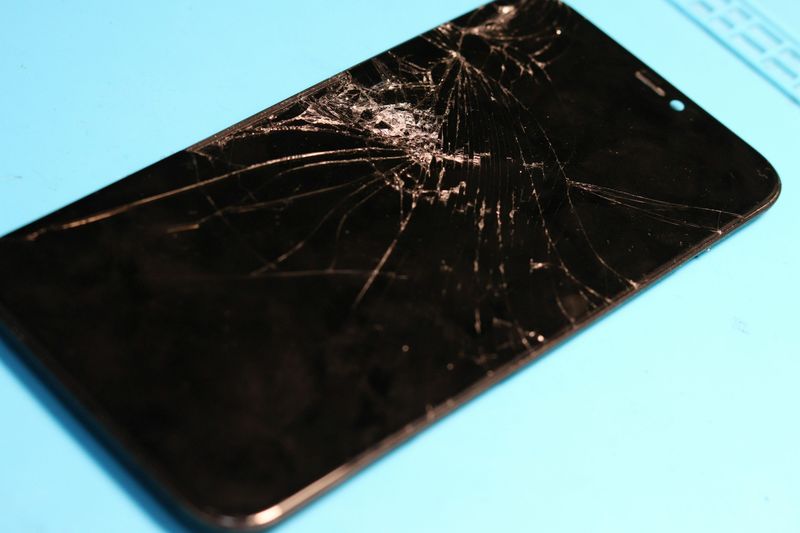10 Reasons They Haven’t Replied Yet (It’s Not Always About You)

Waiting for a text back can feel like forever. Your mind starts racing, wondering if you said something wrong or if they’re upset with you. But here’s the truth: most of the time, their silence has nothing to do with you at all.
1. Their Schedule is Packed

Life gets crazy sometimes. Between school projects, sports practice, family dinners, and homework, your friend might barely have time to breathe, let alone check their phone. They saw your message during lunch but planned to reply later when they had more time.
Then they got caught up in back-to-back activities and completely forgot. Work deadlines, family obligations, and personal commitments pile up fast. When someone’s calendar is overflowing, responding to texts often falls to the bottom of their to-do list.
It doesn’t mean they don’t care about you. They’re just trying to keep their head above water with everything else going on in their world right now.
2. Message Overload is Real

Opening your phone to find 47 unread messages, sounds exhausting, right? Some people deal with this every single day. Group chats, family threads, friend conversations, and school updates all flood in at once.
Your message might have gotten buried under a mountain of other notifications. They didn’t ignore you on purpose—they simply lost track of which messages they’d already answered. Popular people or those in many group chats face this challenge constantly.
Sorting through dozens of conversations takes serious time and energy. Sometimes they need a break from the constant buzzing and beeping before they can tackle their inbox properly.
3. Introverts Need Recharge Time

Not everyone gets energy from constant chatting. Introverts actually feel drained after too much social interaction, even through text messages. They need quiet time alone to recharge their batteries and feel like themselves again.
After a long day of talking to people at school or work, they might need to unplug completely. This doesn’t mean they dislike you or find you annoying. They genuinely prefer face-to-face conversations when they have the energy for meaningful connection.
Digital communication feels exhausting to them in ways that extroverts might not understand. Give them space to breathe, and they’ll reach out when they’re ready to engage again.
4. Emotional Walls Go Up

Some people build invisible walls around their feelings without even realizing it. Psychology calls this an avoidant attachment style, which basically means they keep emotional distance to feel safe. Texting back quickly feels too close, too fast for their comfort zone.
They might actually like you a lot but still delay responding because closeness scares them. Their brain tells them that staying a bit distant protects them from getting hurt. This behavior pattern usually comes from past experiences, not anything you did wrong.
Understanding this helps you see their silence differently. Patience and consistency can slowly help them feel safer opening up to you over time.
5. Mental Health Days Matter

Depression and anxiety don’t take vacations. When someone’s struggling with their mental health, even simple tasks like replying to texts feel impossibly hard. Their brain might be telling them they’ll say the wrong thing or that nobody really wants to hear from them anyway.
They’re not ghosting you—they’re fighting an invisible battle inside their own mind. Social withdrawal is a common symptom of depression. Anxious thoughts can make them overthink every word before hitting send.
Sometimes they need professional help or just time to work through difficult emotions. Your understanding during these tough periods means more than you might realize, even if they can’t express it right now.
6. Technology Isn’t Perfect

Phones break. Wi-Fi cuts out. Messages mysteriously vanish into the digital void. Technology fails us more often than we’d like to admit. Maybe their phone died at school and they forgot their charger at home.
Perhaps they accidentally turned off notifications for your conversation and never saw your message come through. Apps glitch, messages get stuck in sending limbo, and sometimes texts arrive hours late for no apparent reason. Service providers have outages that affect entire neighborhoods.
Before assuming they’re ignoring you, consider that technical gremlins might be the real culprit. A simple follow-up message asking if they got your first one can clear up confusion quickly.
7. Interest Has Faded Away

Sometimes the honest truth hurts: they might not be that interested anymore. Rather than having an awkward conversation about it, some people choose silence instead. They don’t want to hurt your feelings with direct rejection, so they fade away slowly.
This approach isn’t mature or kind, but it happens frequently in modern communication. They’re avoiding confrontation because they don’t know how to express their changing feelings without causing pain. Mixed signals and delayed responses often mean they’re hoping you’ll get the hint.
If this pattern continues for weeks, it might be time to accept the reality and move forward. You deserve someone who’s excited to talk to you.
8. Conflict Feels Too Scary

Did your last conversation end on a tense note? Some people would rather avoid their phone entirely than face a potentially uncomfortable discussion. Conflict makes them anxious, so they delay responding until they figure out what to say.
They’re not ready to address the elephant in the room yet. Fear of saying the wrong thing or making the situation worse keeps them frozen in silence. This avoidance strategy rarely solves anything, but it feels safer to them in the moment.
Eventually, most conflicts need addressing for relationships to move forward. Gentle, non-accusatory follow-ups can sometimes open the door for honest conversation when they’re finally ready to talk things through.
9. Crafting the Perfect Words

Ever spent twenty minutes writing, deleting, and rewriting a single text? You’re not alone. Some people obsess over finding exactly the right words before hitting send. They want their response to sound smart, funny, caring, or whatever tone they’re aiming for.
This perfectionist approach causes major delays. They draft mental versions of their reply throughout the day but never feel satisfied enough to actually send it. Hours turn into days while they search for the perfect emoji or phrase.
Ironically, their silence often creates more problems than an imperfect but timely response would have. Most people prefer a simple reply over radio silence while someone crafts their masterpiece message.
10. Personal Storms are Brewing

Family emergencies happen without warning. Health scares arrive unexpectedly. Personal crises don’t follow convenient schedules. Maybe their parents are fighting, a grandparent is sick, or they’re dealing with a serious problem they haven’t shared with anyone yet.
During these difficult times, maintaining normal communication patterns becomes nearly impossible. Their emotional energy goes entirely toward handling whatever crisis they’re facing. Responding to texts feels trivial compared to the bigger issues consuming their attention.
They’re not deliberately shutting you out—they’re in survival mode. When things calm down, they’ll likely appreciate friends who gave them space without taking their silence personally during the storm.

Comments
Loading…